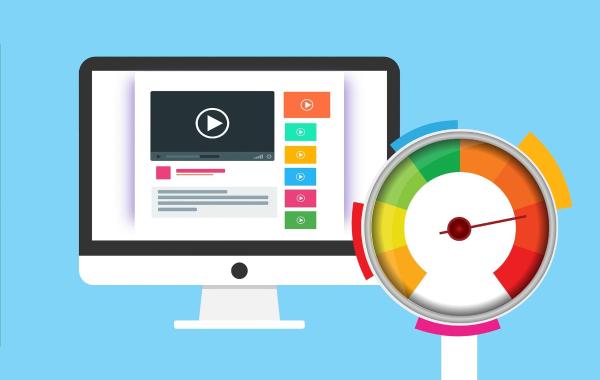Factors That Affecting Website Page Loading Speed & Optimization Strategies
The speed at which your website pages load can affect the overall user experience. Slow page loading times can lead to higher bounce and lower conversion rates, as users may become frustrated and leave the site before engaging. Optimizing your website's page loading speed helps improve user experiences, increases search engine rankings, and drives more traffic to your website.
Understanding the Factors that Affect Website Performance
Understanding the factors that affect website performance is vital to improving page loading speed. Some of the main factors include web hosting, browser caching, image optimization, and server response times.
Web Hosting: The web hosting type can impact your page loading speeds. Shared hosting may be cheaper but can slow down page loading speeds as multiple websites use the same server resources. On the other hand, dedicated hosting allows you to have your dedicated server and can help improve page loading speeds.
Browser Caching: Browser caching helps store website files in a user's browser so they don't need to be re-downloaded each time they visit a page. Utilizing browser caching can reduce page loading times and improve the user experience.
Image Optimization: Images are essential to website design but can slow down page loading speeds if not optimized properly. Compressing images, using smaller file types such as JPEG or PNG, and optimizing alt tags can all help improve image optimization and reduce page loading speeds.
Server Response Time: Server response time is the amount of time it takes for the server to respond to a user's request. Slow server response times can reduce page loading speeds and cause a negative user experience. Improving server response times is essential for optimizing website performance.
Factors that affecting website page loading speed
Other factors can affect website page loading speeds. These include code optimization, leveraging content delivery networks (CDNs), and using a caching plugin.
Code Optimization: Code optimization is essential for improving page loading speeds. Minifying HTML, CSS, and JavaScript files can help reduce file sizes and make pages load faster.
Content Delivery Networks (CDNs): Content delivery networks (CDNs) help deliver website content faster by caching it in servers worldwide. A CDN can reduce page loading times for users in different regions.
Caching Plugin: Installing a caching plugin can significantly improve page loading speeds. They are caching plugins that store website files locally to reduce server requests and improve website performance.
Reduce website code by minifying HTML, CSS, and JavaScript:
Minifying HTML, CSS, and JavaScript can reduce website file size and improve page loading speeds. A minification tool can compress website files and make them load faster.
The number of redirections: Too many redirects can slow down page loading speeds as the browser needs to follow each link before it can load the page. Reducing the number of redirects helps improve page loading speeds and optimize website performance.
Lack of Keep-Alive: Keep-Alive is a setting in the HTTP protocol that helps reduce the time spent establishing and maintaining connections between a server and a client. Enabling Keep-Alive can help improve page loading speeds.
Hotlinking: Hotlinking is when a website links to content hosted on another server. This can be beneficial in certain situations, but it slows down page loading speeds. You can use a CDN to host the scope to reduce hotlinking instead of relying on another server.
If you are using WordPress, hiring a WordPress speed optimization expert can be beneficial to optimize website performance. They can analyze your website and provide detailed recommendations on improving page loading speed.
Strategies for website optimization
Optimization of websites is crucial to any company. It may enhance user experience and conversion rates, resulting in tremendous company success. Here are a few tactics to aid in website optimization:
Ensure Your Website Is Fast and Responsive: Website speed is critical for a great user experience. Optimize your images and use a fast, reliable web hosting service to ensure your website loads quickly. You also want to ensure your website is optimized for all devices, including mobile phones and tablets.
Check and fix broken links: Broken links can considerably deter users. Use tools like Google Search Console or Dead Link Checker to find and fix broken links on your site.
Optimize Your Content: Content is the lifeblood of any website, so make sure you're optimizing it for search engine visibility and user engagement. This includes writing unique, high-quality content that is interesting and relevant to your target audience. Also, include relevant keywords throughout the content so users can easily find it.
Use Visuals: Images, videos, and other visuals can help catch a user's eye and communicate messages quickly. Ensure you're using visuals in your content to make it more engaging and help illustrate essential points.
Leverage Social Media: Ensure you promote your website on social media platforms. This will boost the number of visitors to your website and their interaction with it. Use social media plugins or icons to make it simple for users to share your content with their contacts.
Create internal links between related pages: Internal links are great for guiding users to additional content. Including relevant internal links throughout your content can help users find more information and keep them on your site longer.
Run an audit of your website: A website audit can help you better understand how users interact with your site and identify areas of improvement. Use tools like Google Analytics or Hot Jar to track user behaviour on your website and make the necessary adjustments.
These are merely a few techniques that can be used to optimize your website for increased sales and improved user experience. Using the appropriate optimization techniques, you can increase your website's success and produce more notable outcomes.
Following these tips, your website should become more optimized and user-friendly quickly! Good luck!

